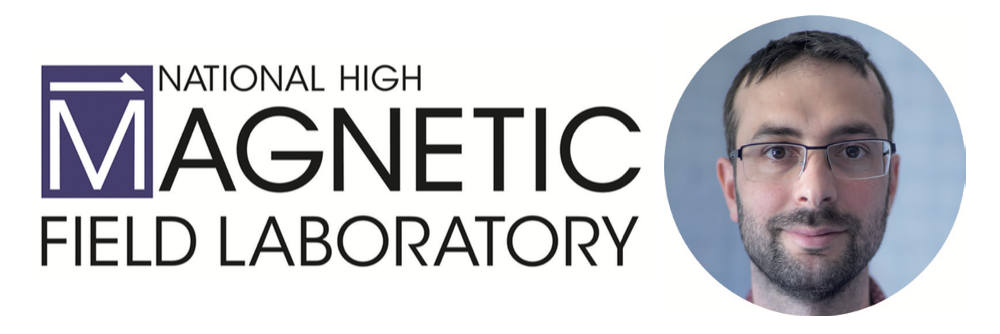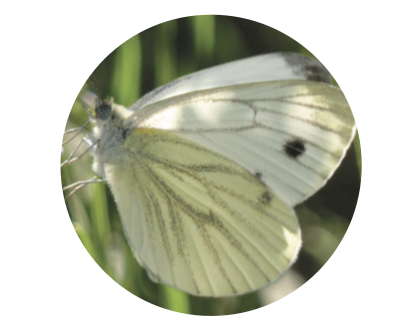NEWSLETTER OF H2020 - INFRAIA-02-2020 "PANACEA" |
|
|---|
Editor-in-chief: Raphaële Coulon |
|
Issue 4 - 15 January 2024 |
|
|
|
PANACEA EVENT
PANACEA Second Annual Users Meeting
|
The PANACEA second Annual Users Meeting in November kicked off with a deep dive into the world of solid-state NMR. The first day was filled with enlightening talks, showcasing compelling research of solid-state NMR for pharmaceuticals, inorganic and hybrid materi- als and examples of the latest developments in DNP and solid-state NMR.
The Florence venue presented a fantastic opportunity to unite PANACEA users with members of the PANACEA laboratories and further members of the research community with inspiring presentations and initiated discussion on topics as diverse as energy material and sustainability, single crystal diamond propertiesand solid-state NMR for biomaterials.

A round table discussion with representatives from solid-state NMR sites in European countries not currently part of the
PANACEA access sites, from Bulgaria, Croatia, Czech Republic, Latvia, Poland and Romania, resulted in initiated discussions on the future perspec- tives and challenges for solid-state materials NMR.
|
|
The event gathered an engaged community of researchers, brough forward prominent reserach and fostered unique interactions among users and members of the PANACEA community. |
|
|
UPCOMING EVENT |
PANACEA solid-state NMR school: "Fundamentals of solid-state NMR spectroscopy for chemists" |
|
We are thrilled to announce PANACEA's upcoming event:

"Fundamentals of Solid-State NMR Spectroscopy for
Chemists" Summer School 2024.
Taking place in the beautiful city of Venice, Italy,
June 16 - 21, this unique educational opportunity is designed for academic and industrial researchers, graduate students,
post-doctoral fellows, early-stage researchers and engineers working on chemistry and materials science related challenges.
|
|
PANACEA FELLOWS
|
 PANACEA Local Operator & scientific manager profile: Frederic Mentink-Vigier,
Research Faculty, The Unites States National High Magnetic Field Laboratory, Florida
|
Q: Why did you decide to pursue a PhD in Science?
A: The real story is very long, an abbreviated version would be; at the end of my Master's degree I wanted to challenge myself and do more physics. I had the opportunity to do a PhD thesis focused on material science combined with electron
paramagnetic resonance for quantum computing applications.
Q: When did you choose a topic related to solid-state DNP NMR?
A: I started already during my Master's internship and the first year of my PhD with DNP using Overhauser. The decision to fully commit to DNP-NMR started in 2021 when I was working as a post doc at the Weizmann Institute of Science under the direction of Shimon Vega and Daniella Goldfarb.
Q: Do you have a science hero or mentor?
A: I have not one but several that I met throughout my education and I would give them credits here:
Olivier Douteau who made me love organic chemistry.
Olivier Guillot-Noel who made me want to do more physics while teaching us the density matrix formalism.
Didier Gourier and Laurent Biner who both advised me during my PhD studies.
Shimon Vega and Daniella Goldfarb, from whom I still draw inspiration from.
Q: As a child, what did you wish to become?
A: This is not your usual answer; I grew up on a farm and wanted to be like my father.
|
|
PUBLICATION HIGHLIGHTS
Leucopterin, the white pigment in butterfly wings: structural analysis by PDF fit, FIDEL fit, RIetveld refinement, solid-state NMR and DFT-D
|
|
In a recent published article, researchers Federica Bravetti, Lukas Tapmeyer, Kathrin Skorodumov, Edith Alig, Stefan Habermehl, Robert Hühn, Simone Bordignon, Angelo Gallo, Carlo Nervi, Michele R. Chierotti and Martin U. Schmidt presented a comprehensive study on leucopterin, the white pigment found in butterfly wings. Despite being a small and rigid molecule, uncovering the crystal structure and tautomeric st

ate of leucopterin required an extensive experimental and analytical effort, employing around 20 different methods.
The research involved diverse techniques, such as syntheses, recrystallization attempts, thermal analysis, powder X-ray diffraction, synchrotron powder diffraction, solid-state NMR, and density functional theory with dispersion corrections (DFT-D). The team explored various tautomeric forms through lattice-energy optimizations and calculated 1H, 13C and 15N chemical shifts in the solid state.
The key findings of the study reveal that leucopterin exhibits variable hydrate states, transitioning from hemihydrate to almost anhy- drate. It crystallizes in a rare space group (P2/c) and adopts the 2-amino-3,5,8-H tautomeric form in the solid state. Moreover, the mole- cules demonstrate an exceptionally efficient packing, resulting in a high density of 1.909 kg/dm3. This unique molecular arrangement may contribute to the observed light scattering and opacity in the wings of butterflies such as Pieris brassicae. The researchers undersco
re the significance of employing a multitude of methods, showcasing the complex nature of leucopterin and its role in the optical properties of butterfly wings.
Bravetti, F., Tapmeyer, L., Skorodumov, K., Alig, E., Habermehl, S., Hühn, R., Bordignon, S., Gallo, A., Nervi, C., Chierotti, M. R. & Schmidt, M. U. (2023). Leucopterin, the white pigment in butterfly wings: structural analysis by PDF fit, FIDEL fit, Rietveld refinement, solid-state NMR and DFT-D. IUCrJ, 10, 448 - 463.
|
|
AND MORE... |
|
|---|
|
In order to see the online version, please click here
If you want, you can unsubscribe to our Newsletter.
|
|
|---|
|
|